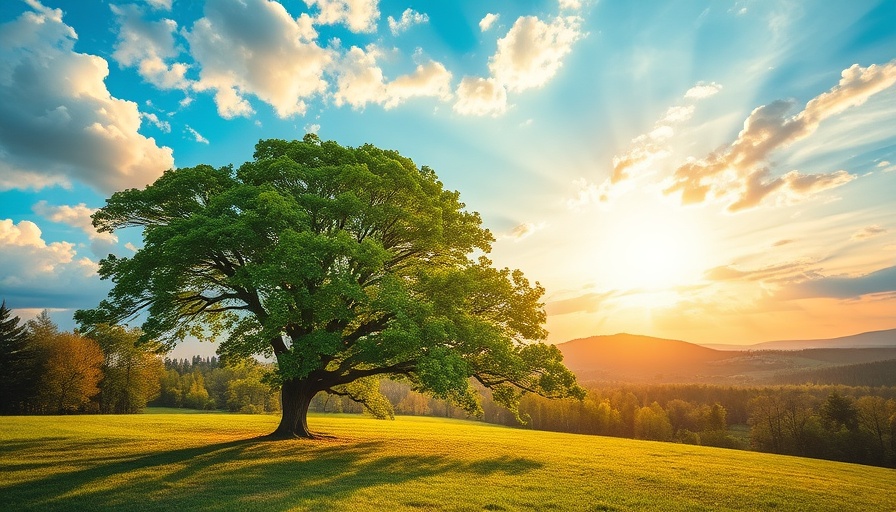
Recognizing Our Responsibility to the Earth
In today's fast-paced world, it's easy to overlook our responsibilities towards the planet. Yet, a long-standing principle echoed in various religious and philosophical texts reminds us of our duty to nurture and protect the earth. For instance, Leviticus 25:23-24 boldly states that the land is precious and must be redeemed, showcasing a historical perspective that emphasizes stewardship. Together, traditions across the globe relay a common theme: we owe the earth our care and respect.
Harmony with Nature: A Universal Call
Philosophies found within the Tao Te Ching and the Quran also highlight the importance of natural balance. The Tao Te Ching teaches that mastery over nature is best achieved by allowing it to function autonomously. This belief encourages us to consider that our attempts to control the environment may lead to disruption.
Similarly, the Quran reminds us that corruption in the land arises from our actions. It serves as a cautionary remark that underscores the importance of ethical stewardship. These wisdoms stress that adhering to nature's balance is essential not only for ecological health but also for our collective well-being.
Global Perspectives on Peace and Environmental Care
Various religious teachings, from the Vedic hymns in Hinduism to the Dalai Lama’s messages, resonate with the idea of peace and harmony with the environment. The Yajurveda’s call for peace extends not just to humanity but also to nature, suggesting that ecological sustainability benefits everyone. The Dalai Lama further encapsulates this by advocating for living in harmony with each other and nature.
Practical Steps Toward Environmental Stewardship
So how do we translate this wisdom into action? Creating a sustainable lifestyle can begin with simple yet effective choices.
- Start with Recycling: Utilize recycling centers to dispose of plastic, paper, glass, and metals. Understanding a recycling guide can help you navigate local facilities.
- Embrace Composting: Composting your organic waste reduces landfill contributions and creates benefits for your garden.
- Implement Upcycling Strategies: Get creative with DIY projects by repurposing materials instead of discarding them. This not only reduces waste but adds character to your space.
- Explore E-Waste Recycling: Did you know that electronics disposal contributes significantly to waste? Look for e-waste recycling programs available in your community.
- Reduce Your Carbon Footprint: By making eco-friendly choices, such as using public transport or purchasing biodegradable products, you contribute to minimizing climate change.
Community Initiatives: Mobilizing Together
Living sustainably doesn't just rest on individual actions; it flourishes through community-based initiatives. Engage with local sustainability programs or community gardens, which foster a collective spirit and connection with nature. These projects not only promote environmental stewardship but also develop a sense of belonging and responsibility among participants.
Reflecting on Our Impact
The profound wisdom embedded in ancient texts encourages modern societies to rethink our relationship with the Earth. By recognizing our shared responsibility, advocating for sustainable practices, and fostering a community spirit, we can ensure a healthy planet for future generations.
Your Role in Eco-Friendly Living
In closing, it’s critical to consider what you can do today to help the environment. Small actions culminate into significant impacts, shaping the future toward sustainability. Can you commit to one more recycling effort or perhaps initiating a local clean-up? Every action counts!
 Add Row
Add Row  Add
Add 




 Add Row
Add Row  Add
Add 

Write A Comment